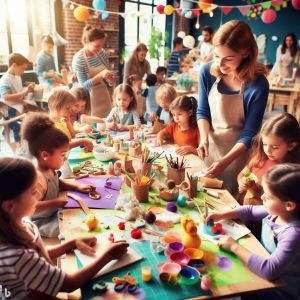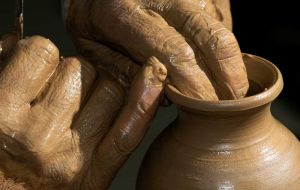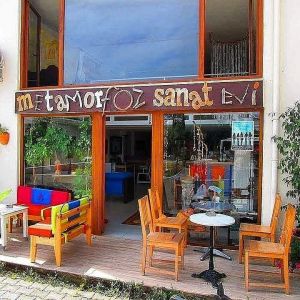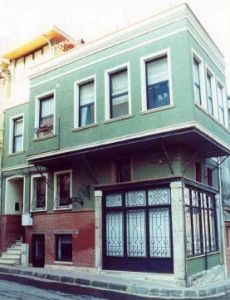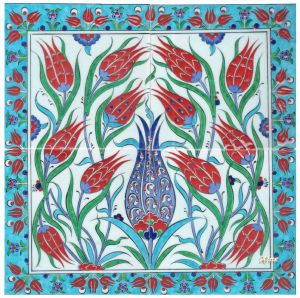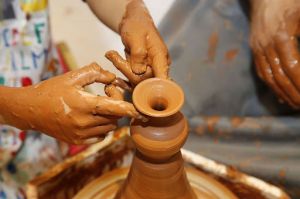Workshop work
Workshop work are special activities focused on a particular subject, skill or branch of art, usually involving educational and practical work. These studies offer participants the opportunity to acquire knowledge in a particular field, acquire new skills, or improve existing skills. Workshops can be in different subjects; for example, workshops are organized in many areas such as art, handicrafts, music, dance, writing, design, technology, culinary skills. Workshops are usually organized for a certain period of time, where the participants get together and get knowledge about the subject or put it into practice. Students, artists, craftsmen, creative professionals and anyone interested can participate in the workshop. At such events, teachers or experts usually guide the participants and share their experiences.
Workshop working table:
A workshop work table is a table used as a work area in a workshop. This table is usually large and durable because it is used in the workshop for tasks such as working with various materials, making assemblies, or producing artistic projects.
Workshop workbench:
Workshop workbench generally refers to workbenches designed for working on special projects such as woodwork, metalwork, or construction work. These tables may have different characteristics depending on the specificity of the project, for example, they may include hinged systems for woodwork, measuring marks and cutting surfaces.
Various workshop studies:
Different workshop work, workshop work can be carried out in various areas. For example:
- Art workshops: It includes artistic activities such as painting, drawing, sculpture, ceramics.
- Handicrafts workshops: These are places where crafts such as knitting, sewing, jewelry making, and glasswork are taught.
- Music workshops in the city: It includes activities related to music, such as playing an instrument, singing, or composing music.
- Theatrical workshops: It includes studies of drama, acting, screenwriting, and stage performances.
- Science workshops: Science experiments are workshops involving robotics, coding, and scientific research.
- Kitchen workshops It includes activities related to the kitchen, such as cooking, making cakes, or tasting wine.
Children's workshop works:
Children's workshops are workshops organized for children to develop their creativity, learn manual skills and learn while having fun. For example, drawing, handicrafts, science experiments or drama workshops can be organized for children.
Theatre Workshop Studies and:
Theatre workshop studies offer participants the opportunity to develop their acting skills, gain stage experience and participate in the performing arts. These workshops may include activities such as studying theatrical plays, doing character analysis, practicing staging.
Museum Workshop work:
Museum workshop studies offer visitors the opportunity to learn more about the works on display in the museum and to understand these works through their own creativity. In these workshops, participants can create artistic projects, make handicrafts, or engage in activities based on museum collections. For example, a painting or sculpture workshop can be the inspiration for works on display in a museum.
Workshop work Before school:
Workshops for pre-school, pre-school children aim to develop children's motor skills, acquire manual skills and encourage creative thinking. In such workshops, activities such as painting, cutting and pasting, storytelling, music and movement can be organized for children.
Workshops for Adults:
Workshops for adults are workshops for adults, usually aimed at self-development, acquiring new skills or exploring their interests in depth. Workshops for art, crafts, music, creative writing, photography or hobbies are just a few of the options available to adult participants.
Corporate workshop work:
Corporate workshop studies offer companies the opportunity to train their employees, develop their collaboration and communication skills, enhance their leadership skills, or collaborate on special projects.
The Benefits of Pre-School Workshops:
The Benefits of Pre-School Workshop Studies can help children develop fine and gross motor skills. For example, activities such as painting or gluing can stimulate these skills. Workshops can help children develop their ability to cooperate, share and communicate with other children. Engaging in creative activities can build children's confidence. The experience of creating their own handicrafts can boost their self-esteem. Art, drama and other creative workshops can help children unleash their creativity.
Workshops in psychology:
Psychology workshop studies aim to learn psychological topics in a more understandable and interactive way. Such workshops can increase psychological awareness, help people develop emotional intelligence skills, and contribute to personal development.
Woodworking workshop works:
Woodworking workshops can give participants skills in woodworking. Workshops can be organized in different fields, such as woodcarving, carpentry or furniture making.
